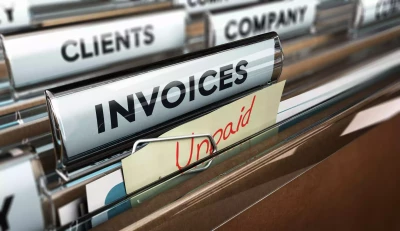Addressing Unpaid Freight Bills: Challenges and Solutions
March 26, 2024
 The fast-moving logistics field is host to more than its share of headaches. With so much at stake, the last thing any shipper needs is the annoyance of an unpaid bill. Unfortunately, this critical issue is all too common in today’s transport marketplace.
The fast-moving logistics field is host to more than its share of headaches. With so much at stake, the last thing any shipper needs is the annoyance of an unpaid bill. Unfortunately, this critical issue is all too common in today’s transport marketplace.
Most supply chain professionals understand the importance of protecting themselves by doing thorough research on contracts, carriers, and providers. Despite these measures, there are instances where things go awry, and unpaid freight bills become a reality.
“I’ve been through this several times, and every time it pops up, it’s a nightmare,” says HP Hood Senior Logistics Manager Pat Musser on the issue of unpaid freight. “From a company standpoint, we try to protect ourselves by doing due diligence ahead of time.”
Unpaid bills can stem from a variety of scenarios. From brokers refusing to pay to fraudulent loads and double brokering, the reasons behind unpaid bills present complex challenges for stakeholders.
From a carrier standpoint, there are few situations worse than delivering a load and failing to receive payment. Fraudulent transactions in which brokers disappear after taking funds are growing in frequency, leaving carriers in a dire circumstance.
Who is responsible for covering losses in cases of unpaid freight? Find answers in the latest episode of the Stay In Your Lane Podcast.
“In some cases, the guy that they took the load from didn’t really have right to the load to begin with,” says OOIDA Regulatory Supervisor Jimmy Jefferson. “Now they’ve taken the money and disappeared, and the carrier is forced to figure out how to get paid. It can be a long, drawn-out process.”
The issues carriers encounter while attempting to recover payment can be lengthy and arduous, and often yield minimal returns. With instances of double brokering and new brokers entering the industry with malicious intent, the situation becomes even more challenging for carriers.
 Pursuing legal recourse for situations related to unpaid freight bills requires a proactive and timely response. Statutes of limitations in these cases can pose a serious hurdle, highlighting the need for timely action in pursuing nonpayment. Understanding the legal nuances of the situation and employing appropriate strategies for resolution will likely require the services of legal counsel, which entails additional costs.
Pursuing legal recourse for situations related to unpaid freight bills requires a proactive and timely response. Statutes of limitations in these cases can pose a serious hurdle, highlighting the need for timely action in pursuing nonpayment. Understanding the legal nuances of the situation and employing appropriate strategies for resolution will likely require the services of legal counsel, which entails additional costs.
“There are a variety of things you can do depending on the situation at hand,” says transport attorney Thomas Kern of the law firm Bensech Friedlander Coplan and Aronoff.” You can use different tools from a collection standpoint either as the carrier or shipper consignee who is trying to avoid paying twice.”
In cases that fall short of outright fraud, a pragmatic approach to handling unpaid bills can sometimes yield results. Reputable brokers can work with carriers to find amicable solutions while minimizing losses for all parties involved. This approach focuses on maintaining relationships and avoiding costly legal battles.
Navigating unpaid freight bills requires a multifaceted approach that combines legal knowledge, industry expertise, and effective communication. While these unfortunate situations present numerous challenges, proactive measures and collaborative efforts can mitigate risks and ensure smoother operations for all stakeholders.
At Triple T Transport, we remain committed to paying freight bills within 7 to 10 days. We are determined to address challenges head-on and finding solutions that uphold fairness and integrity in the logistics landscape. Stay tuned for more insights and on this critical topic.














